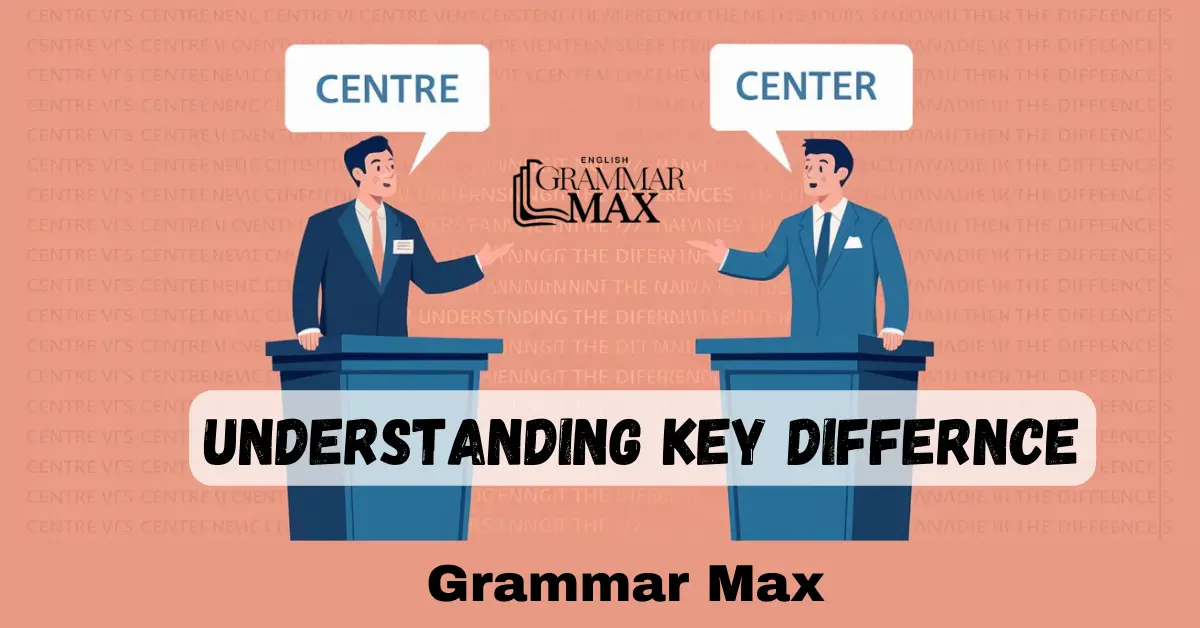When it comes to the words centre vs center, many people find themselves puzzled. While both words refer to the same concept, a central point or location, their usage differs based on geographic regions.
Learn more about the specifics of these two spellings and discover their implications in English language usage.
Definitions
- Centre (noun): The middle point of something; a place of activity or interest. Used primarily in British English.
- Center (noun): The same meaning as “centre,” but this spelling is favored in American English.
The Regional Divide: British vs American English
In British English, the correct spelling is centre. This form is commonly used across the UK and other Commonwealth countries. Conversely, center is the preferred spelling in American English. Understanding this distinction is crucial for effective communication, especially in written form.
Why the Difference?
The difference between “centre” and “center” stems from historical linguistic evolution. The French influence on English introduced various spellings, leading to the divergence we see today. For instance, many words ending in “-re” in British English have the “-er” ending in American English. Other examples include:
- Theatre (British) vs. Theater (American)
- Metre (British) vs. Meter (American)
Common Mistakes and How to Correct Them
Common Mistakes
- Interchanging Spellings: Using “centre” in American contexts or “center” in British contexts can confuse readers.
- Inconsistent Usage: Switching between the two spellings within a single document can lead to inconsistency.
How to Correct Them
- Know Your Audience: Always determine the primary audience for your writing and choose the appropriate spelling.
- Be Consistent: If you start with “centre,” continue to use that throughout your document (or vice versa).
- Proofread: Review your writing to ensure you’ve used the correct spelling throughout.
Everyday Usage: How to Use “Centre” and “Center” Correctly
Both “centre” and “center” can be used interchangeably in sentences where the meaning remains unchanged. Here are examples of correct usage:
- British English: “The shopping centre is always bustling with activity.”
- American English: “The shopping center is always bustling with activity.”
Tips for Choosing the Right Spelling
- Know Your Audience: If you’re writing for a UK audience, use “centre.” If your audience is American, opt for “center.”
- Stay Consistent: Whichever spelling you choose, ensure consistency throughout your document.
- Proofread: Always double-check your work for any regional spelling errors before publishing.
Frequently Asked Questions
What is the difference between “centre” and “center”?
“Centre” is the British English spelling, while “center” is the American English spelling.
Can I use “centre” in American writing?
It’s best to use “center” in American writing to avoid confusion.
Are there other words that follow this pattern?
Yes, examples include “theatre/theater” and “metre/meter.”
What should I do if I accidentally use the wrong spelling?
Simply correct it during proofreading to maintain clarity.
How can I improve my understanding of regional spellings?
Regular reading and writing practice in the target dialect can help reinforce correct usage.
Conclusion
Grasping the distinctions between centre vs center is essential for effective communication in English. Whether you’re writing for a British or American audience, using the correct spelling enhances clarity and professionalism.
By familiarizing yourself with these terms and avoiding common mistakes, you can improve your writing significantly. Remember, the key to effective language use lies in consistency and understanding your audience. Embrace these differences, and you’ll convey your message more accurately and confidently!

William Henry is a writer for Grammar Max, a blog that focuses on synonyms and phrases. He loves exploring the quirks of the English language and enjoys helping readers improve their vocabulary. William’s articles are easy to read, fun, and full of useful tips for anyone looking to better understand and use English. Whether you’re a student, a professional, or just someone interested in language, William’s writing on Grammar Max makes learning about words and their meanings simple and enjoyable.





